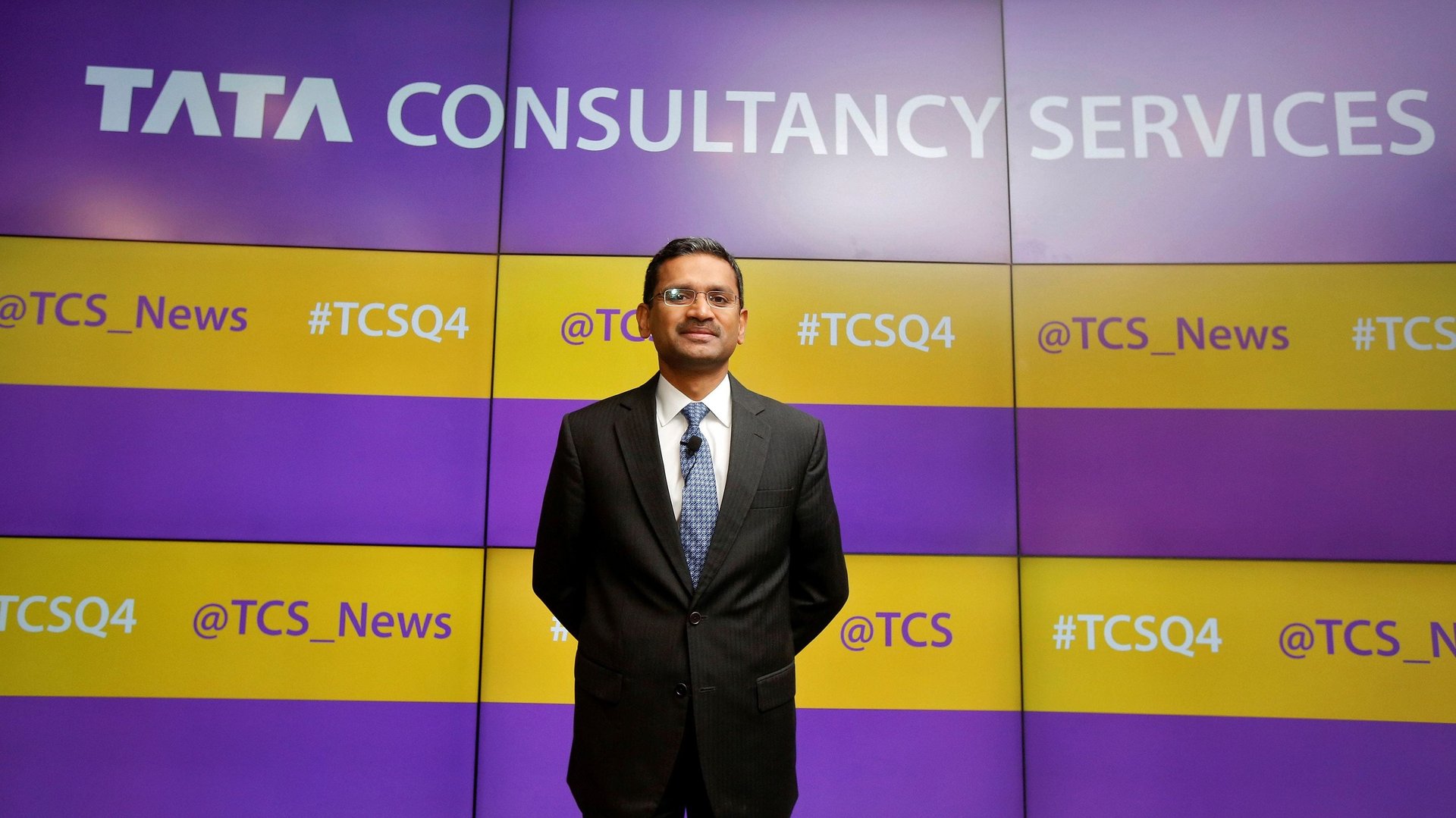India’s largest IT firm didn’t discriminate against Americans, a US jury ruled
Indian IT companies aren’t always guilty of substituting American workers with cheap foreign labour.


Indian IT companies aren’t always guilty of substituting American workers with cheap foreign labour.
On Wednesday (Nov. 28), India’s largest IT outsourcing firm, Tata Consultancy Services (TCS), won a class-action lawsuit alleging discrimination against non-south Asian workers in the US.
A nine-member California federal jury found that the Mumbai-based company did not have a “pattern or practice” of intentional discrimination based on race or national origin, a report on legal news site Law360 said.
While the case, first filed in 2015, predates US president Donald Trump’s election campaign and tenure, it does mirror his administration’s sentiment that Indian outsourcing firms favour expat Indians over their American counterparts.
In the lawsuit, three former TCS employees, Christopher Slaight, Seyed Amir Masoudi, and Nobel Mandili, claimed they lost out on work opportunities and eventually were fired because of their races and national origins.
In December, TCS tried to get the lawsuit dismissed but a federal judge in Oakland, California, denied the request, paving the way for a trial by court, which commenced on Nov. 05.
The case put a sharp lens on TCS’s heavy south Asian employee composition.
“…the company has fired fewer than 1% of its south Asian employees, who are mostly Indian, in the US, compared with 10.6% of its non-south Asian employees,” the plaintiff’s lawyers pointed out, as per Law360. He also revealed that, between 2011 and 2014, TCS had let go of 78% of its non-south Asian workers who were taken off job assignments or “benched.”
In comparison, only 22% of south Asians, who make up over half the company’s US workforce, were benched.
During the proceedings, a slew of non-South Asian employees shared experiences of hostility towards them at TCS. For instance, Masoudi, a software engineer of Iranian origin, said his Indian bosses and colleagues mocked him, called him “stupid,” made racist comments about Muslims, and eventually, kicked him off the team servicing Apple.
However, TCS was able to prove that the non-south Asians in question were let go of because they were difficult to work with, refused to relocate, or didn’t want to commute to new job sites.
“…the decisions we make about the hiring and retention of employees are based purely on their capabilities and fit in serving our customers’ business needs,” a company spokesperson said. “Irrespective of their background or national origin, we will continue to invest in our people, provide ongoing digital training, and empower them to succeed at the TCS.”
Among the biggest job creators in the US, TCS hired over 12,500 locals between 2012 and 2016. It recruits from over 75 US college campuses. TCS North America’s free flagship community-engagement programme, goIT, has apparently provided 100,000-plus hours of “high-impact skill building” for students since it was established in 2009. To top it off, the company’s employment data show a 400% rise in local hires since 2011, the defence lawyer argued.
Hang fire for other Indian IT giants
Despite TCS’s win, Indian outsourcing giants can’t yet breathe a sigh of relief. The jury’s still out on anti-American biases at a number of these firms—Infosys, Wipro, Tech Mahindra, HCL Tech, Cognizant—who all have pending cases across the US, courtesy Kotchen himself.
“Every company’s case will be tried separately and if they can provide evidence that someone was fired for cause and the suit is just a malicious suit, not a bonafide one, then the companies will be fine,” said Poorvi Chothani, a Mumbai-based immigration attorney and president of the Indo-American Chamber of Commerce Western India Council. “But if the complainants are able to prove they were discriminated against, the companies stand to lose.”
However, like TCS, it’s highly possible that a predominantly-Indian workforce at Indian (and American) tech firms is a need-based phenomenon, and not one that signals bias.
“I, anecdotally, am aware there is a talent shortage plaguing America. Even small companies in the Bay Area are struggling to find suitable employees at affordable prices because people with special skill sets are demanding six-figure salaries—that is just not sustainable for businesses,” said Chothani. “India has a young workforce that has recently been getting skilled and absorbed into the IT industry, that’s why the demographic at TCS and other tech companies looks like this. It’s not just because they’re cheap labour. They’re not being paid less. As per the H-1B rules, they have to be paid prevailing wages.”